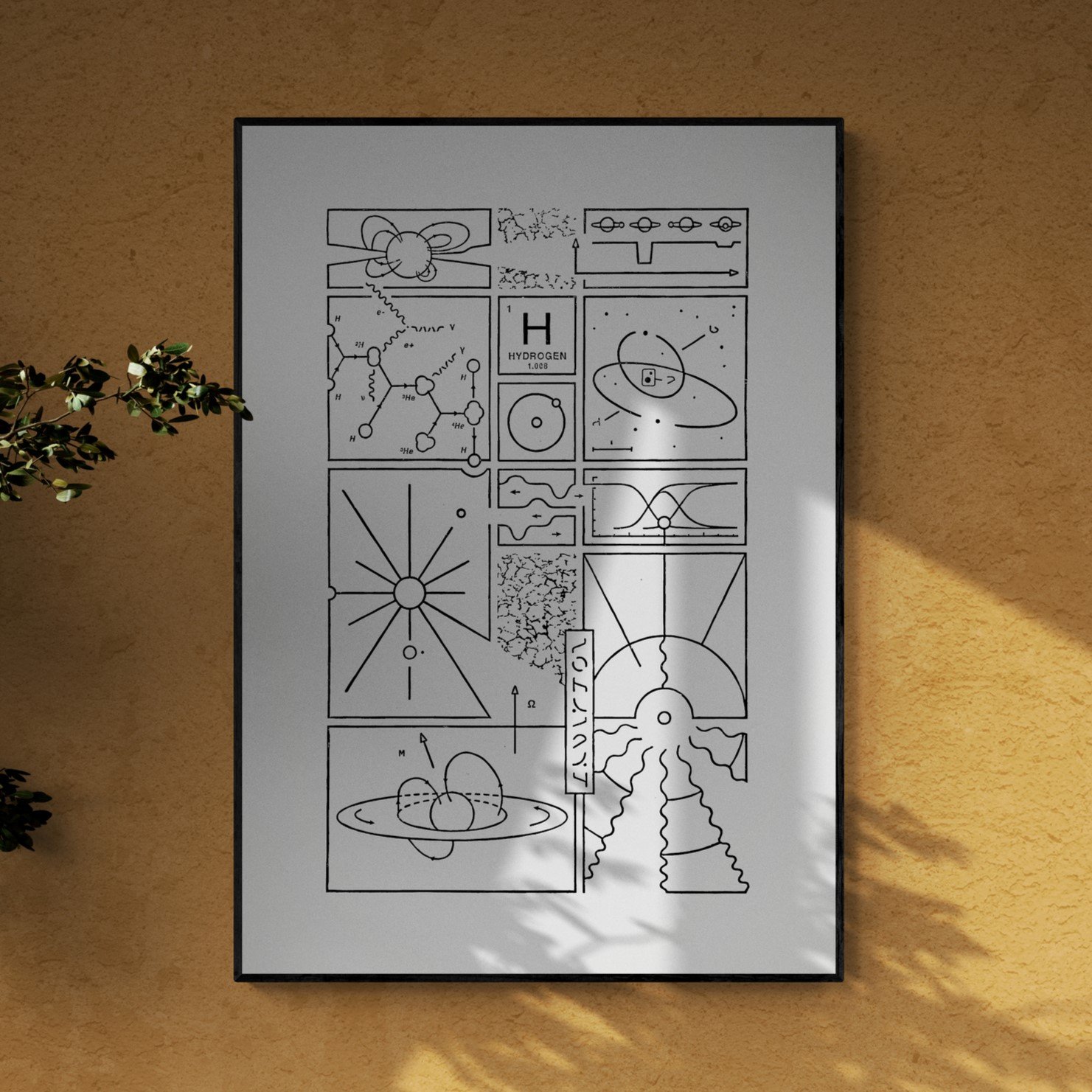"What do we perceive from a star if not its radiation?
The year 2024 was an opportunity to see boreal aurora at low latitudes, the consequences of multiple coronal mass ejections.
I would lie if I said that this is what inspired this engraving because I started it in 2023 but these events considerably oriented its composition. inspired by astrophysics and science fiction, this engraving has the central theme of the sun and the stars in general. There we find, through a series of scientific and symbolic vignettes, representations of stellar nucleosynthesis, atomic diagrams, elements relating to plasma, accretion disks, magnetic fields and, the finality of these processes, radiation.
One vignette features the proton-proton chain, a series of nuclear fusion reactions that power the hearts of stars, transforming hydrogen into helium and releasing colossal energy in the form of light and heat. This fusion is the primary source of energy for main-sequence stars, like our own Sun.
At the center of the work, the symbol of the element hydrogen (H), the most abundant atom in the universe, reminds us that this primordial element is the building block of stars and galaxies. The diagram of the hydrogen atom, with its single electron orbiting the nucleus, symbolizes the elegant simplicity underlying the complex phenomena of astrophysics.
The engraving also includes illustrations of atomic structure and energy levels, evoking the electronic transitions that produce the light spectra observed by astronomers. These spectra are essential for determining the chemical composition, temperature, density and motion of celestial objects.
“Radiant” is a window into a different dimension of cosmic physics, evoking both the beauty and complexity of astrophysical phenomena. The use of clean lines and technical symbols creates a dialogue between art and science, inviting one to delve into the depths of the cosmic unknown."


This plate is made of lino. so I ink it and place my paper on it. I apply quite a bit of pressure with a tool and repeat for each print
Gotcha. Thanks for clarification.
One day, when I have a bit more disposable income, I hope to buy one of your prints :)
hahaha, , you're welcome ! :)